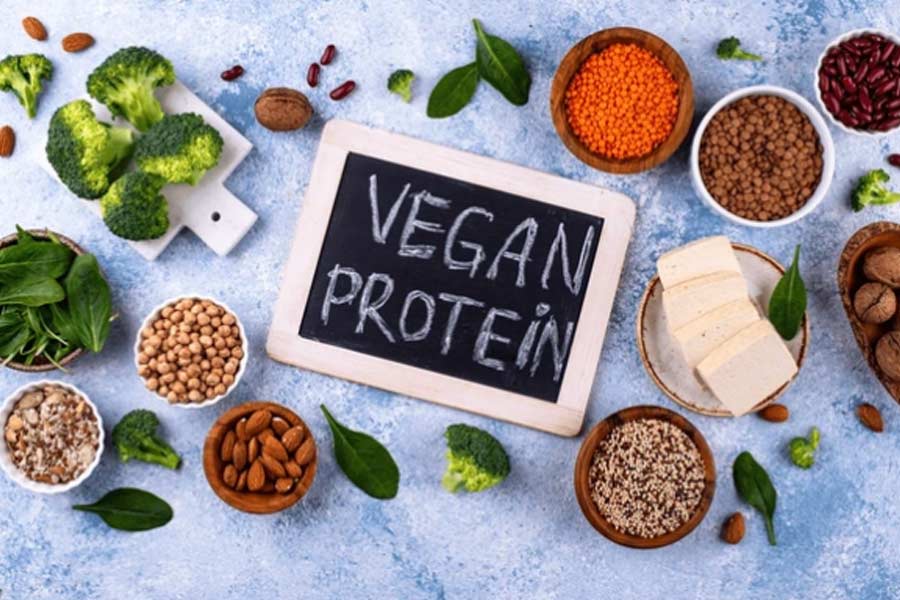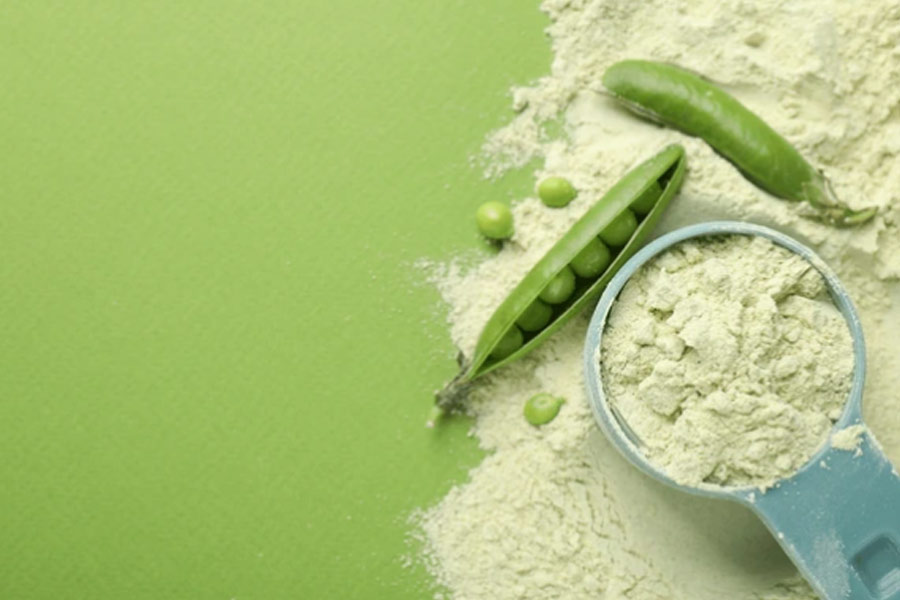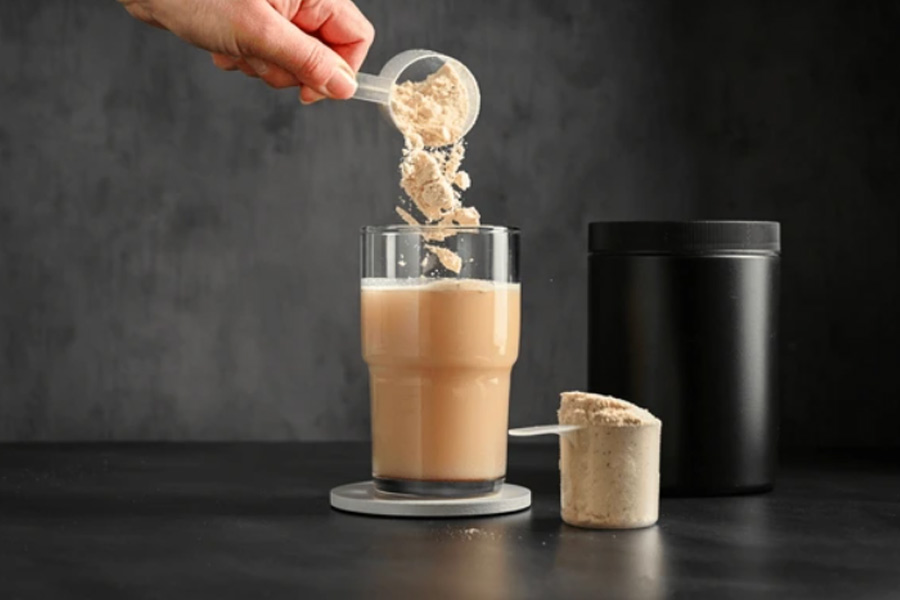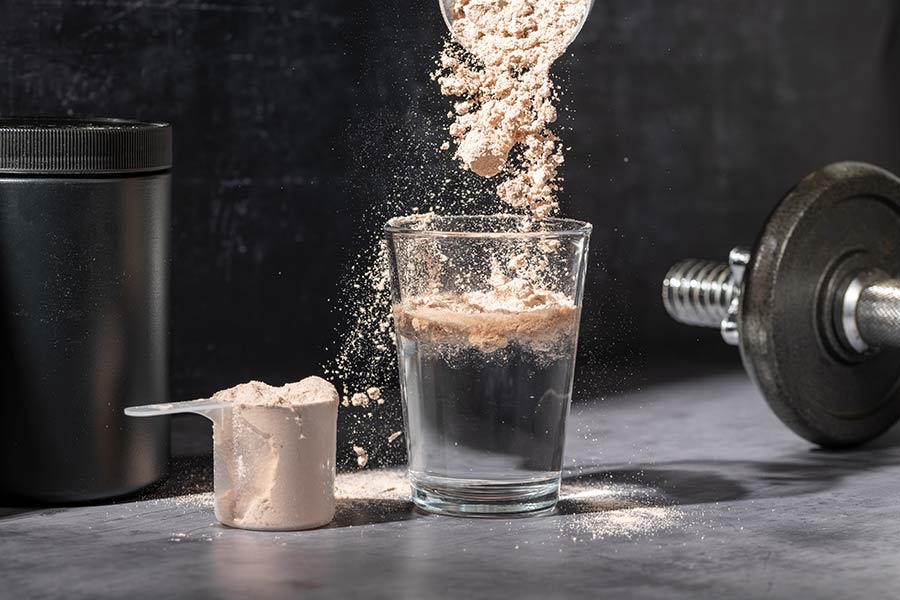For years, protein shakes have been synonymous with muscle gain and post-workout recovery. But there has been a sudden surge in the popularity of vegan protein shakes, with many fitness influencers — and even some celebrities — endorsing them.
With plant-based protein powders muscling their way into the mainstream, a pertinent question arises: How are they different from the non-vegan protein supplements and do users need expert guidance before jumping on the bandwagon?
Celebrity trainer Abhijit Roy, who has spent over three decades working with international gym chains and Tollywood celebrities, says the key lies in understanding how protein functions.
“It is essential to know how to consume protein and how much of it to consume,” he explains. “At a time, your body can only break down 12 grams of protein, which means if you’re asked to consume 30 grams throughout the day, you need to break it down into two or three parts.”
Roy warns against blindly chasing numbers or trends. “Most people think just increasing protein will give them results. What they don’t understand is that overconsumption without a balanced diet leads to digestive issues and kidney problems. Having fibre with protein is essential,” he adds.
According to Roy, the ideal daily intake depends on the individual: around 0.85 grams per kilogram of body weight for regular people, one to 1.5 grams for athletes, and up to three grams for professional bodybuilders.
Beyond whey: The rise of vegan protein

Shutterstock
For Danish Naushad, a medal-winning international kettlebell athlete and personal trainer, both vegan and whey proteins can work — provided they are chosen thoughtfully. “If someone tolerates dairy and wants maximum muscle recovery or performance, I recommend regular whey protein,” he says. “But if someone is vegan, vegetarian, or lactose intolerant, a high-quality plant-based blend like pea and rice protein is perfectly fine. At the end of the day, total daily protein matters more than the source.”
Naushad stresses that not all vegan proteins are created equal. “A good quality plant protein is just as effective as whey for muscle gain and recovery,” he notes. “The real issue is when people pick cheap, single-source powders that lack a full amino acid profile, especially leucine — the key amino acid that triggers muscle protein synthesis.”
Leucine, he explains, acts like a switch for muscle repair and growth. “No leucine means poor recovery, even if total protein is high. Enough leucine — around two to three grams per serving — gives a strong signal for muscle repair.”
He also highlights that dosage is non-negotiable. “Even the best protein powder is useless if the total daily protein dose is too low.”
What science says

Shutterstock
Nutritionist and founder of Code Wellness, Dr Ananya Bhowmik, agrees that plant proteins can be just as effective — and offer added health benefits. “When blended correctly, such as pea and rice together, they provide a complete amino acid profile comparable to whey,” she says.
Studies published in the Journal of the International Society of Sports Nutrition (2020) have found that pea protein supports muscle repair and growth similarly to whey when total protein intake is adequate.
Bhowmik also points to other advantages. “Plant proteins are easier on the digestive system for those with lactose intolerance or milk allergies. They also contain fibre and phytonutrients that improve gut health and metabolism.”
Many plant proteins, such as soy, chia, and hemp, come with additional perks — from antioxidants and omega-3 fatty acids to polyphenols that help reduce inflammation.
However, Bhowmik cautions against assuming all plant proteins are problem-free. “Some powders contain gums or artificial sweeteners that may cause bloating or gas, particularly for those with a sensitive gut,” she says. “And yes, contamination can be a concern — some plant-based products have been found to contain trace heavy metals. Always choose brands that are third-party tested.”
Proceed with caution: Moderation and medical guidance matter

Shutterstock
“Protein powders should complement a varied diet rather than replace whole foods,” cautions Dr Anil Kumar Jangid, senior consultant in gastroenterology at CK Birla Hospitals, Jaipur. He explains that while plant-based proteins are generally safe and well-tolerated, excessive intake can strain the kidneys and cause digestive discomfort. Understanding dosage, product quality, and one’s own health conditions, he adds, is essential — balance and moderation remain the foundation of safe and effective supplementation.
Finding the right fit

Shutterstock
The takeaway from all four experts is clear: it’s not about whether you choose whey or vegan protein — it’s about choosing wisely. Roy advises moderation and purpose. “Never use protein without understanding what you need it for and how much your body needs,” he says.
Naushad echoes the sentiment. “Results depend on four things — total daily protein, a complete amino acid profile, digestibility, and consistency. If these are equal, both whey and plant-based proteins give the same results.”
Dr Jangid adds that consulting a healthcare professional before starting any supplement is especially important for those with pre-existing kidney, liver, or digestive issues, as even plant-based powders can cause strain if overused.
Bhowmik rounds out the advice with a broader perspective: “Plant-based proteins not only support health but also sustainability. They are cholesterol-free, low in saturated fat, and environment-friendly.”
Whether your scoop comes from a cow or a crop, one thing remains constant — the science of protein is less about labels and more about balance, quality, and consistency.

